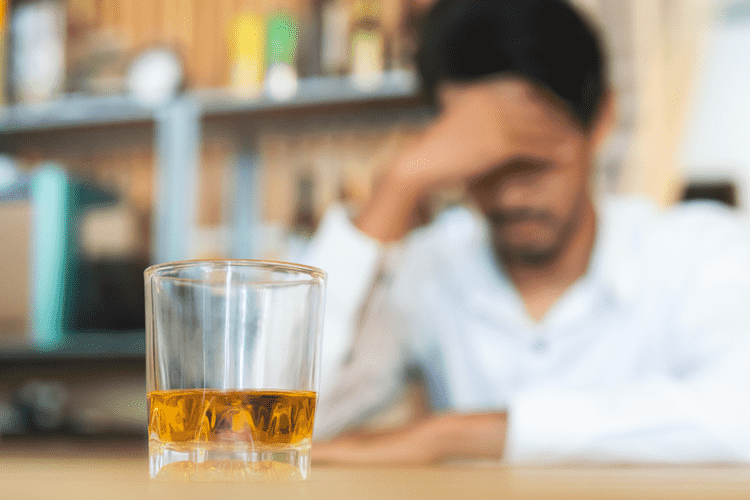Avoiding triggers is a crucial step in recovery, as it prevents exposure to the people, environments, and situations that may encourage drinking. Identifying triggers requires honest introspection and a willingness to confront the factors that contributed to alcohol use. These could include certain social settings, such as bars or parties, or specific emotional states, like stress or loneliness.
Effectiveness of 12-Step Recovery Programs
Satisfying hobbies can distract you from wanting to drink, but they also help you relax — something everyone needs to do. Practicing your refusal ahead of time can help you feel more comfortable and confident when you find yourself in a situation that involves alcohol. Maybe you don’t think you depend amphetamine addiction treatment on alcohol exactly, but you still wonder whether you might be drinking too much. Engage in activities that bring you joy and help you relax, such as exercise, hobbies, or spending time in nature.
Helping people find purpose, living a life in recovery from addictions to drugs and alcohol.
Making a commitment to sobriety is just the first step, followed by developing a supportive network, learning coping skills, and improving overall health. Professionals can offer guidance and support during this difficult process. Additionally, accepting responsibility for one’s actions and attending support groups can help to maintain sobriety in the long run.
Stage 6: Continued Growth and Sobriety
The middle stages of alcohol problems represent a critical turning point in the progression of alcohol use disorder. During this phase, the signs of alcohol abuse become more pronounced, and the physical and mental health consequences of excessive drinking begin to manifest more clearly. For individuals with pre-existing mental health issues, the recovery process can be even more complex. Some individuals may find that recovery exacerbates their symptoms as the stress of learning to live without https://www.edtengenharia.com.br/drug-withdrawal-symptoms-treatment-and-management/ substances can test their emotional and physical limits. Co-occurring disorders, such as anxiety, depression, or PTSD, can pose a significant risk to a person’s success in recovery 4. Therapy and counseling play crucial roles in addiction recovery, providing individuals with the necessary tools and support to overcome their addiction.


After realizing that substance abuse is a how to overcome alcoholism problem and that they can’t quit drugs or alcohol on their own, many individuals first begin considering the need for help. This is an important addiction recovery step because, during this time, you begin to realize the impact of substance abuse on the lives of those around you. For many people, the impact of their own addiction on those they love is a driving factor to move forward toward other stages of overcoming addiction.

Step To Overcome Alcohol Addiction
However, when alcohol makes up part of your typical routine, drinking can become something of an automatic response, especially when you feel stressed or overwhelmed. Turner notes the importance of bringing along a trusted support person when attending events that involve alcohol. It’s often easier to turn down a drink when you don’t have to do it alone.
Options for Treatment
Support networks are not only about companionship but also about creating a safety net of people who can listen, offer guidance, and reinforce positive decisions. Human services organisations can assist individuals in connecting with the appropriate treatment programs and resources. They can provide information on available mental health services, support groups, and other community resources that can aid in the recovery process.
How do the best treatment programs help patients recover from addiction?
However, the repeated consumption of alcohol, even in social settings, can gradually lead to the development of tolerance, where the body requires more alcohol to achieve the same effects. This increased tolerance can set the foundation for alcohol abuse and addiction as individuals may begin to drink more frequently and in larger quantities. Moreover, therapy and counseling provide coping strategies tailored to an individual’s unique situation. They help individuals develop effective ways to manage stress, handle day-to-day triggers, and navigate the challenges that arise during the recovery journey. By providing a supportive and non-judgmental environment, therapy and counseling offer individuals the space to explore their emotions, fears, and aspirations. Research and clinical experience have identified a number of factors that promote recovery.
- In counseling, therapists guide people to find and replace these negative thoughts when they may happen.
- Now that you’ve admitted you have a drinking problem; the next step is to consider seeking help.
- This proven path works because it addresses the core of addiction—self-centered fear, dishonesty, and resentment—by focusing on personal accountability, spiritual growth, and helping others.
- Recognising these signs can help you or a loved one understand the severity of the problem and take the necessary first step to seek help.
Additionally, maintaining long-term recovery requires ongoing effort and a commitment to the habits and strategies that have helped you reach this point. Continually reevaluating your needs, seeking support, and adapting your approach as necessary will be crucial for sustaining your recovery over the long term. Developing and maintaining healthy habits and routines is essential for sustainable recovery.
